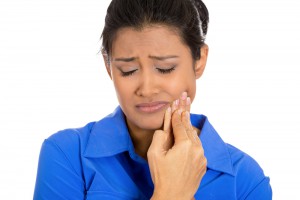TMJ Disorder, Bruxism, and Migraine Treatments
TMJ disorders describe a variety of conditions affecting the chewing system, including the teeth, jaw muscles, jaw joint, jaw bone, and gum tissue. TMJ disorders can result in a wide variety of symptoms, including head, neck, or shoulder aches, facial and tooth pain and discomfort, and popping, clicking, or grinding sounds in your jaw and ears.
 Dr. Susie Ang is one of a few dentists in the Toronto area who regularly treats problems associated with the TMJ. Those who are experiencing migraines, head, neck or ear aches, painful spasms and stiffness in the jaw, sensitive, worn or chipped teeth, gum recession, or root exposure may be suffering from a TMJ-related disorder.
Dr. Susie Ang is one of a few dentists in the Toronto area who regularly treats problems associated with the TMJ. Those who are experiencing migraines, head, neck or ear aches, painful spasms and stiffness in the jaw, sensitive, worn or chipped teeth, gum recession, or root exposure may be suffering from a TMJ-related disorder.
TMJ Disorder and Bruxism
For many individuals, problems with the temporomandibular joint (TMJ) can be caused by bruxism (teeth clenching/grinding during sleep). Bruxism can be a reflex reaction to an airway obstruction, which is an indication of sleep apnea. The teeth grind together as a defense mechanism to clear the blockage (i.e., the tongue that has relaxed into the airway), resulting in a sleep disturbance from deep sleep to lighter sleep.
TMJ Disorder, Bruxism, Sleep Apnea, and Headache Treatment
An oral appliance such as the Vivos® device may be a good option to effectively treat TMJ Disorder, bruxism, sleep apnea, and headaches in some patients. The Vivos® System offers an option that can diagnose and treat the underlying cause of TMJ Disorder and disrupted breathing during sleep.
Learn more about the Vivos® System here.
Dr. Ang can treat the effects of TMJ Disorder and other conditions only after a thorough exam. Remember, proper diagnosis of TMJ Disorder is critical in order to prevent permanent damage to teeth, muscles, and jaw joints. To learn more about TMJ treatment and disorders, contact Dr. Susie Ang.
